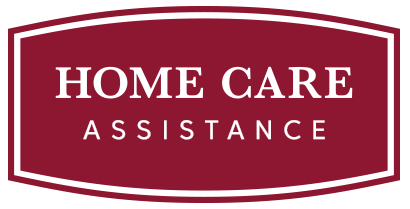Top 5 Alzheimer’s Symptoms to Watch For

Many seniors are living with Alzheimer’s disease and don’t know it because some symptoms are more difficult to spot than others. Seniors with Alzheimer’s disease may experience varying symptoms at different stages, but there are some common signs family caregivers should watch out for. Knowing these symptoms can help your aging loved one get immediate treatment to slow the progression of Alzheimer’s disease.
1. Difficulty with Normal Tasks
Doing laundry, cleaning up the home, and cooking daily meals are some of the things most seniors can do with little or no assistance. If you notice your loved one having difficulty completing daily tasks, it might be a sign of Alzheimer’s disease, especially if he or she has always accomplished these things with ease. You should also watch out for unusual clutter, peculiar clothing choices, or any other disruptions to your loved one’s normal routine.
Caring for a senior loved one with Alzheimer’s disease can be overwhelming at times. If you’re the primary caregiver for a senior family member and are looking for professional elder care, Dallas Home Care Assistance should be your top choice. Our dedicated and compassionate caregivers are committed to helping older adults manage their health and enjoy a higher quality of life in the golden years.
2. Confusion about Time, People, & Places
Some family caregivers associate confusion with lack of sleep or reactions to new medications, but it can also be a warning sign of Alzheimer’s disease. It’s okay for seniors to mistake people or places as long as they correct the errors quickly. However, seniors who lose track of dates or the passage of time may be experiencing severe cognitive decline. If your loved one has difficulty understanding something immediately, it might be a warning sign of Alzheimer’s disease.
3. Difficulty Speaking
Joining conversations can be challenging for seniors with Alzheimer’s disease, and they may also have a difficult time following instructions. If you see your loved one stop in the middle of a conversation to repeat him or herself, he or she may have Alzheimer’s disease. Other warning signs of Alzheimer’s disease include calling objects and people by the wrong names and having difficulty finding the right words.
4. Inability to Trace Steps
Seniors who put items and personal belongings in unusual places may be in the early stages of Alzheimer’s disease. Placing the remote control on another table in the room isn’t an issue, but you should be concerned if your loved one puts the remote in the refrigerator.
During the early stages of Alzheimer’s disease, seniors may be unable to trace their steps, and they may start accusing others of stealing their belongings. If your loved one is facing similar issues at home, let his or her doctor know immediately.
Alzheimer’s disease is just one of the many health conditions older adults are susceptible to. Seniors can face a variety of challenges as they age, many of which can be mitigated with the help of professional in-home caregivers who provide high-quality elderly home care. Dallas families trust Home Care Assistance to help their elderly loved ones age in place safely and comfortably.
5. Issues with Understanding Visual Images
Most people believe Alzheimer’s disease only affects the memory, but it may also have a negative impact on vision. If you notice your loved one having difficulty reading or seeing things from a distance, it may be a symptom of Alzheimer’s disease. You should also report any issues with driving or distinguishing color or contrast to your loved one’s doctor.
The days, weeks, and months following an Alzheimer’s diagnosis can be challenging for both seniors and their families. However, these challenges can be made less stressful with the help of caregivers trained in professional Alzheimer’s care. Dallas Home Care Assistance is here to help your loved one enjoy the golden years while simultaneously managing the symptoms of Alzheimer’s. Call us at (214) 363-3400 to learn about our comprehensive in-home care plans.

